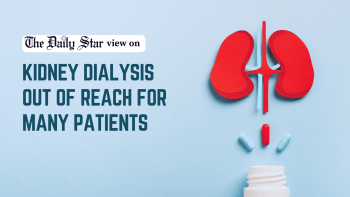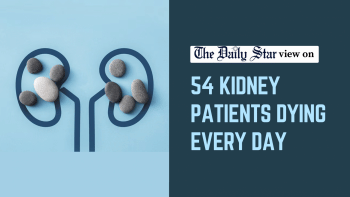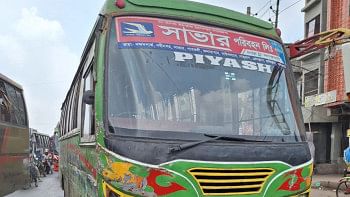Kidney patients need better care at CMCH

We are concerned about the crisis of space and resources at the nephrology ward of Chattogram Medical College Hospital (CMCH). According to a recent report by this daily, despite increasing demand for kidney treatment, this unit remains overcrowded, forcing many patients to receive treatment on the floor. Established with 25 beds in 1991, it now has 40 beds, but this is too inadequate considering the huge number of patients that flock to the facility from Chattogram and the neighbouring districts.
The bed shortage is not the only problem here, however. Dialysis facilities at the CMCH are also quite inadequate. There are nine haemodialysis machines that can serve only 32 patients twice a week. A public-private partnership initiative, comprising 31 machines, has extended services to more patients, but the number of patients seeking dialysis is still almost three times the hospital's capacity. While private clinics offer haemodialysis, their cost is prohibitive for most. Unfortunately, dialysis is the only viable treatment for end-stage kidney failure (ESKF) patients, so a lack of access can have devastating consequences for them. Moreover, a kidney transplant initiative launched at the CMCH in 2008 was later suspended due to a lack of resources and trained personnel.
The bed shortage is not the only problem here, however. Dialysis facilities at the CMCH are also quite inadequate. There are nine haemodialysis machines that can serve only 32 patients twice a week. A public-private partnership initiative, comprising 31 machines, has extended services to more patients, but the number of patients seeking dialysis is still almost three times the hospital's capacity. While private clinics offer haemodialysis, their cost is prohibitive for most. Unfortunately, dialysis is the only viable treatment for end-stage kidney failure (ESKF) patients, so a lack of access can have devastating consequences for them.
The CMCH case sums up the overall experience of kidney patients in Bangladesh: lack of treatment options as well as their exorbitant costs. According to a BIDS study unveiled in December, 93 percent of the families of kidney patients experienced financial distress in accessing dialysis across public, private, and NGO-run hospitals. In a country where an estimated 200-250 people per million develop ESKF every year and require dialysis, the average monthly treatment cost of Tk 46,426 is too high, given that our average monthly household income is just Tk 32,422. As per the BIDS study, 19.5 percent of the surveyed kidney patients received fewer dialysis sessions than medically recommended because of the high cost, jeopardising their health further.
This situation deserves to be addressed with the highest priority. Given the dependence on the CMCH in the broader region of Chattogram, the nephrology ward there must be expanded to accommodate more patients, while new specialised kidney care facilities should also be established. Given the growing number of kidney patients in Bangladesh, a similar approach should also be adopted across the country.


 For all latest news, follow The Daily Star's Google News channel.
For all latest news, follow The Daily Star's Google News channel. 






Comments